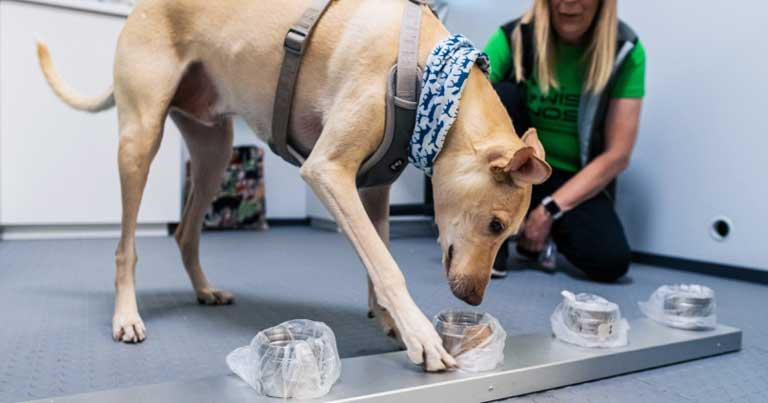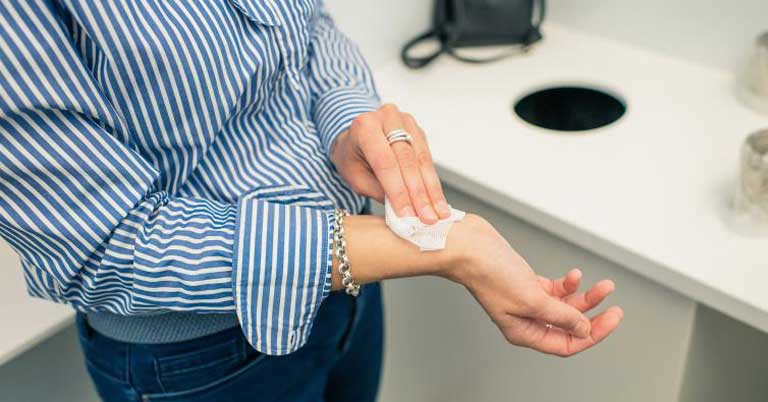
Finavia has introduced COVID-19 sniffing dogs to Helsinki Airport. The dogs’ sensitive noses are expected to speed up the process of identifying those infected with COVID-19. The city of Vantaa believes that the dogs will be an efficient method of ensuring health and safety at airports.
“The pilot is unique and a world first,” says Ulla Lettijeff, Director, Helsinki Airport, SVP of Finavia Corporation. “No other airport has attempted to use canine scent detection on such a large scale against COVID-19. We are pleased with the city of Vantaa’s initiative. This might be an additional step forward on the way to beating COVID-19.”
According to preliminary tests conducted by a research group at the Veterinary Faculty of the University of Helsinki, dogs are able to smell the virus with almost 100% certainty. They can also identify the virus days before the symptoms have even started – something that laboratory tests fail to do.
Dogs are also able to identify COVID-19 from a much smaller sample than the PCR tests used by health care professionals. A dog only needs 10-100 molecules to identify the virus, whereas test equipment requires 18,000,000.
The Helsinki Airport COVID-19 dogs are trained by Wise Nose. Nose Academy, the research group’s startup company, is running the operation at the airport. In the future, customs dogs might replace the current operatives. Official COVID-19 testing with trained dogs can only begin once a corresponding legislative amendment has been passed.
“We are working with Finnish Customs to prepare for a potential scenario where it takes charge of the operation,” says Susanna Paavilainen, CEO of Suomen hajuerottelu – WiseNose Ry, University of Helsinki’s DogRisk research group.

Taking a COVID-19 dog test at Helsinki Airport will not include direct contact with the dog. Instead, the dog will perform its work in a separate booth. Those taking the test will swipe their skin with a test wipe and drop it into a cup, which is then given to the dog. This also protects the dog’s handler from infections. All the tests are processed anonymously.
If the test result is positive, the passenger will be directed to a health information point maintained by the city of Vantaa, which is located at the airport.
In the future, four dogs will work at the airport during a shift. The duration of each shift depends on the dogs. A total of 16 are being trained for the job.
“Dogs need to rest from time to time,” says Paavilainen. “While two dogs are working, the other two are on a break. The service is mainly intended for passengers arriving from outside the country.”
Almost all of the dogs have done scent detection before. How long it takes to learn to identify COVID-19 depends on the dog’s background. One of the dogs that will soon work at Helsinki Airport is an eight-year-old greyhound mix called Kössi, who learned to identify the scent in just seven minutes. “Not all dogs can do it as they operate in different ways. Kössi has a lot of experience from identifying biological samples,” Paavilainen adds.
The circumstances surrounding COVID-19 are continuously evolving. Our friends at APEX have a dedicated COVID-19 page, which they’ll be updating regularly to help keep you up-to-date on how the novel coronavirus is impacting the aviation industry. Visit the page for the very latest news >>





